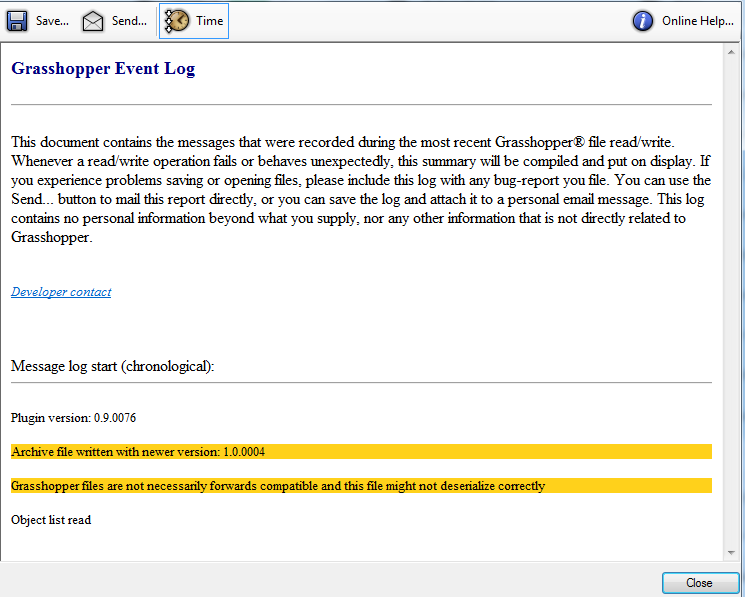Hello Ladybug community!
We are excited to announce the availability of the new version of our [+] plugins for Grasshopper and Dynamo. This release includes Honeybee[+] and Ladybug[+] 0.0.04 for Grasshopper, Ladybug 0.2.0 for Dynamo and Honeybee 0.1.7 for Dynamo. This release should still be considered as an alpha release and be used by caution.
If you’re using an older version of the plugin for Grasshopper or Dynamo ensure to update to the new version! You can download the plugins from Food4Rhino and Dynamo package manager.
Updated version of primers are available at: https://www.gitbook.com/@ladybug-tools
Ladybug
-
Sunpath
- @devang has refined Ladybug’s Sunpath algorithm to generate the same results as NOAA solar calculator. There was less than a degree of difference in the calculation which is now fixed. Shout out to @PaulWintour for reporting this issue.
-
Import EPW
- Several improvements has been made to EPW class to handle edge cases and handle non-standard epw files. Shout out to @Federico587 for reporting these issues.
Honeybee
-
Set reuse matrices to False by default
- Honeybee[+] unlike Honeybee loads the results from a previous study if available. This was designed to reuse the results of the studies instead of re-running them. This behavior has made a lot of confusion for users. For now all the reuse options are set to False by default until we implement a smarter change detection to re-run the analysis based on changes in inputs. You can still set them to True to reuse the results if you need.
-
Climate-based sky
- Climate-based sky component was missing adjusting meridian. The issue will result in generating wrong skies for point-in-time daylight analysis. This is now fixed. Shout outs to @AbrahamYezioro and @AndreaZani905 for reporting this issue and @sarith for pointing out the solution.
-
Sun matrix
- gendaylit couldn’t handle hours with 0 diffuse radiation. This is now fixed.
- There was a bug in naming sun modifiers in sun matrix calculation. It is now fixed. Thank you @MingboPeng for reporting both issues.
-
sDA calculation
- There was a bug in calculating spatial daylight autonomy in the initial release which is now fixed. Thank you @Federico587 for reporting this issue.
Documentation
-
Contributing: Ladybug Tools now has a repository for contributing to the project. The repository code of conduct, and contributing guidelines.
-
Python code style: All the code for the plugins is now following PEP8. You can read more about the Python style guide for Ladybug Tools here.
-
API documentation: API documentation for the libraries are updated and are available at links below:
- ladybug: http://www.ladybug.tools/apidoc/ladybug/
- honeybee: http://www.ladybug.tools/apidoc/honeybee/
- Honeybee[+] wiki: We started writing up a number of wiki pages for Honeybee[+] to answer the most common questions. All the pages are still work in progress but still can be helpful. The wiki pages can be edited by anyone who has a GitHub account. Feel free to edit the pages if needed and let us know about the changes. We will be happy to review your updates.
Upcoming release
This release will be followed up with another release soon with two main improvements:
-
Add an sqlite database for annual daylight simulations: If you have used any of daylight coefficient or 3-phase recipes you have probably experienced some lag in Grasshopper interface once the results is loaded. It’s because Honeybee[+] loads all the results for each analysis point to the memory to have quick access to them for post-processing the results. However in theory it should not affect the Grasshopper interface performance but it actually does. To avoid this issue we are making some changes in how the results will be accessed for the analysis using sqlite database. This change will introduce new opportunities for efficient result post-processing.
-
Add blind states generator for spatial daylight autonomy based on IES LM-83-12 section 2.2.6 Blinds/Shades Operation: There is currently no limitation, except for what I just mentioned in number 1, to develop your own logic right but based on the discussions on the forum it seems that this is a topic that deserves its own component. Thanks to @Mathiassn and @MingboPeng for sharing their thought on the topic.

